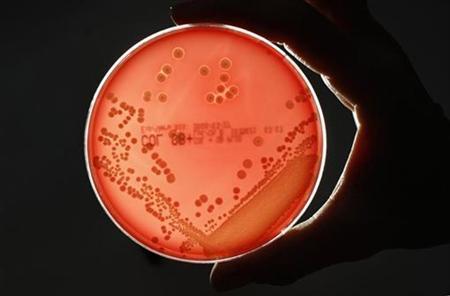
Many of these bacteria have already evolved into deadly superbugs that are resistant to many antibiotics, the United National health agency said.
The bugs "have built-in abilities to find new ways to resist treatment" and can also pass on genetic material that allows other bacteria to become drug-resistant, it added.
The WHO's assistant director-general for health systems and innovation, Marie-Paule Kieny, said it was up to governments to put in place policies to boost investment in research and development (R&D) if new drugs are to be found in time.
Youth in well-off nations smoke, drink less than in 2010: WHO
"Just when resistance to antibiotics is reaching alarming proportions, the pipeline is practically dry," she told reporters in a telephone briefing. "If we leave it to market forces alone, the new antibiotics we most urgently need are not going to be developed in time."
In recent decades, drug-resistant bacteria, such as Staphylococcus aureus (MRSA) or Clostridium difficile, have become a global health threat. Superbug strains of infections such as tuberculosis and gonorrhea are already untreatable.
The WHO has previously warned that many antibiotics could become redundant this century, leaving patients exposed to deadly infections and threatening the future of medicine. The "priority pathogens" list has three rankings - critical, high and medium - according to how urgently new antibiotics are needed.
The critical group includes multi drug-resistant bacteria that pose a particular threat in hospitals, nursing homes, and other care facilities. These include Acinetobacter, Pseudomonas and various Enterobacteriaceae that can cause often deadly infections such as pneumonia and septicemia.
"These bacteria are responsible for severe infections and high mortality rates," Kieny said. "While these bacteria are not widespread and do not generally effect healthy people, the burden for patients is now alarming and new effective therapies are imperative."
Off-label antidepressant use not backed by science: study
The second and third tiers contain other increasingly drug-resistant bacteria that cause more common diseases such as gonorrhea and food poisoning caused by salmonella.
The WHO said the list is intended to spur governments to put in place policies that incentivise basic and advanced R&D.
Tim Jinks, head of drug resistant infections at the Wellcome Trust global health charity, said that within a generation there could be up to 10 million deaths a year from drug resistant infections without new antibiotics. He said the list would be an important tool to steer research.
"Without new medicines to treat deadly infection, lifesaving treatments like chemotherapy and organ transplant, and routine operations like caesareans and hip replacements will be potentially fatal," Jinks said.



1735196035-0/beyonce-(7)1735196035-0-165x106.webp)


1735199120-0/Untitled-design-(100)1735199120-0-270x192.webp)

1735195617-0/Untitled-design-(99)1735195617-0-270x192.webp)


1735025557-0/Untitled-(96)1735025557-0-270x192.webp)











COMMENTS
Comments are moderated and generally will be posted if they are on-topic and not abusive.
For more information, please see our Comments FAQ